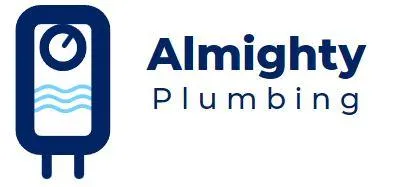Differences Between Condensing vs Non Condensing Tankless Water Heaters
When it comes to tankless water heaters, homeowners often have a choice between two options: condensing and non-condensing models. Both types have their own set of advantages, so it's important to understand the differences before making a decision. This article aims to provide a detailed comparison of condensing and non-condensing tankless water heaters, helping readers make an informed choice that suits their specific needs.

What is a tankless water heater and how does it work?
A tankless water heater, also known as an on-demand water heater, is a modern and efficient alternative to traditional water heaters. Unlike conventional models that store and heat a large amount of water in a tank, tankless water heaters heat water directly as it passes through the unit. When you turn on a hot water tap in your home, cold water flows into the tankless water heater through an inlet pipe. Inside the unit, either a gas burner or an electric element heats the water instantaneously as it travels through a heat exchanger. This process eliminates the need for a storage tank and ensures that you have a continuous supply of hot water on demand. The water temperature is controlled by a flow sensor that measures the volume of water passing through the unit. Once you turn off the hot water tap, the tankless water heater automatically shuts off the heating element, conserving energy.


What is a condensing tankless water heater?
A condensing tankless water heater is an energy-efficient alternative to traditional water heaters that can provide hot water to your home on-demand. It works by heating water as it passes through the unit using a heat exchanger. Unlike conventional water heaters, which store and continuously heat a large quantity of water, condensing tankless water heaters heat water on-demand, resulting in significant energy savings. What sets condensing tankless water heaters apart is their ability to recapture heat from the exhaust gases that are produced during the combustion process. These water heaters have a secondary heat exchanger that helps cool the flue gases, causing water vapor in the exhaust to condense. This condensed water releases additional heat, which is transferred to the incoming cold water, boosting the overall energy efficiency of the system. The condensed water that is formed during this process is typically drained away, providing a continuous supply of hot water without the need for a storage tank. This feature not only saves space but also eliminates the standby energy losses associated with maintaining a tank of hot water.
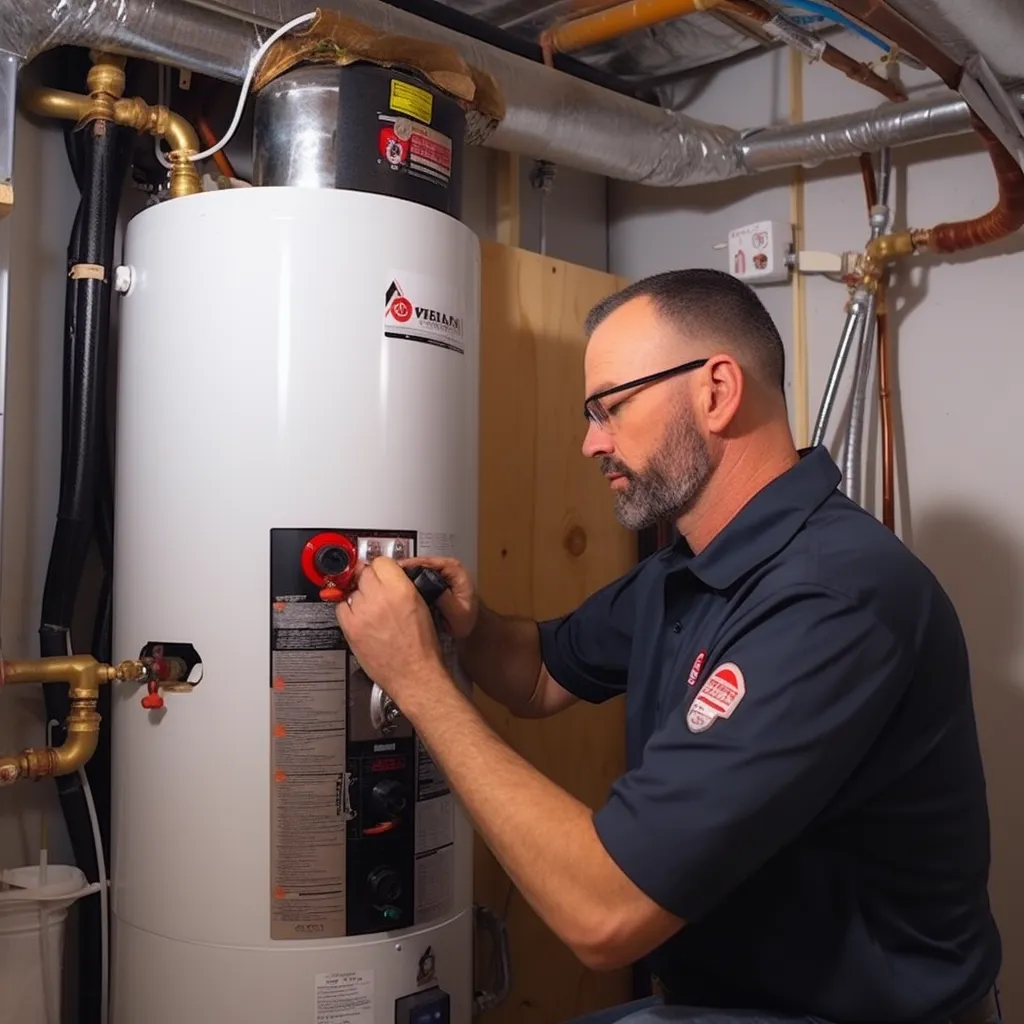
What are the differences?
When it comes to lowering energy expenses, tankless water heaters offer a fantastic solution. However, it is crucial to grasp the distinction between condensing and non-condensing models. The primary differentiation lies in their approach to dealing with exhaust gases. Non-condensing models release these gases directly into the atmosphere, while condensing models cool them down to the point of condensation. Consequently, the condensated exhaust gases are expelled as water vapor.
Condensing models offer enhanced energy-efficiency and overall efficiency when compared to non-condensing models. Although condensing models may have higher initial costs, they can deliver substantial long-term benefits by decreasing energy expenditures. By making models more energy-efficient, this process outperforms non-condensing alternatives and ensures economical advantages in the long run.
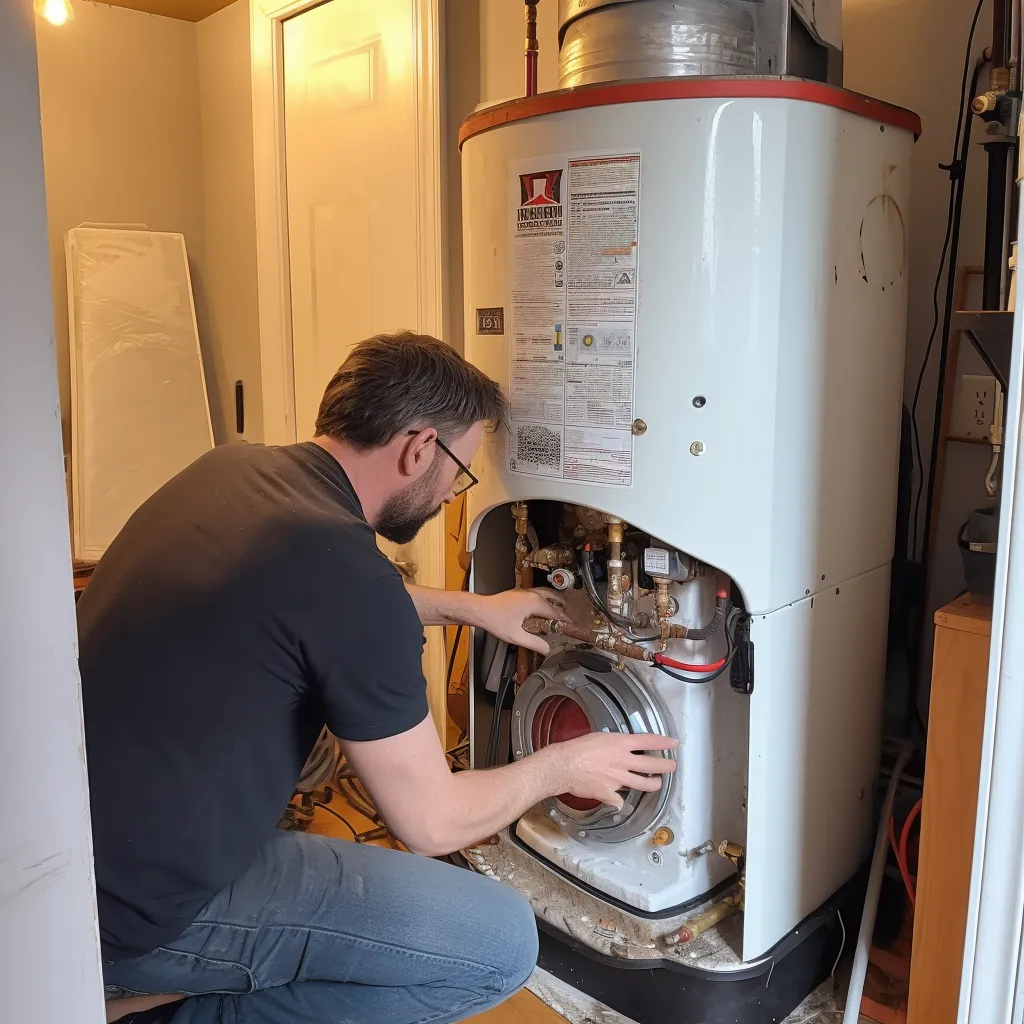
Benefits of a condensing tankless water heater
A condensing tankless water heater offers numerous benefits:
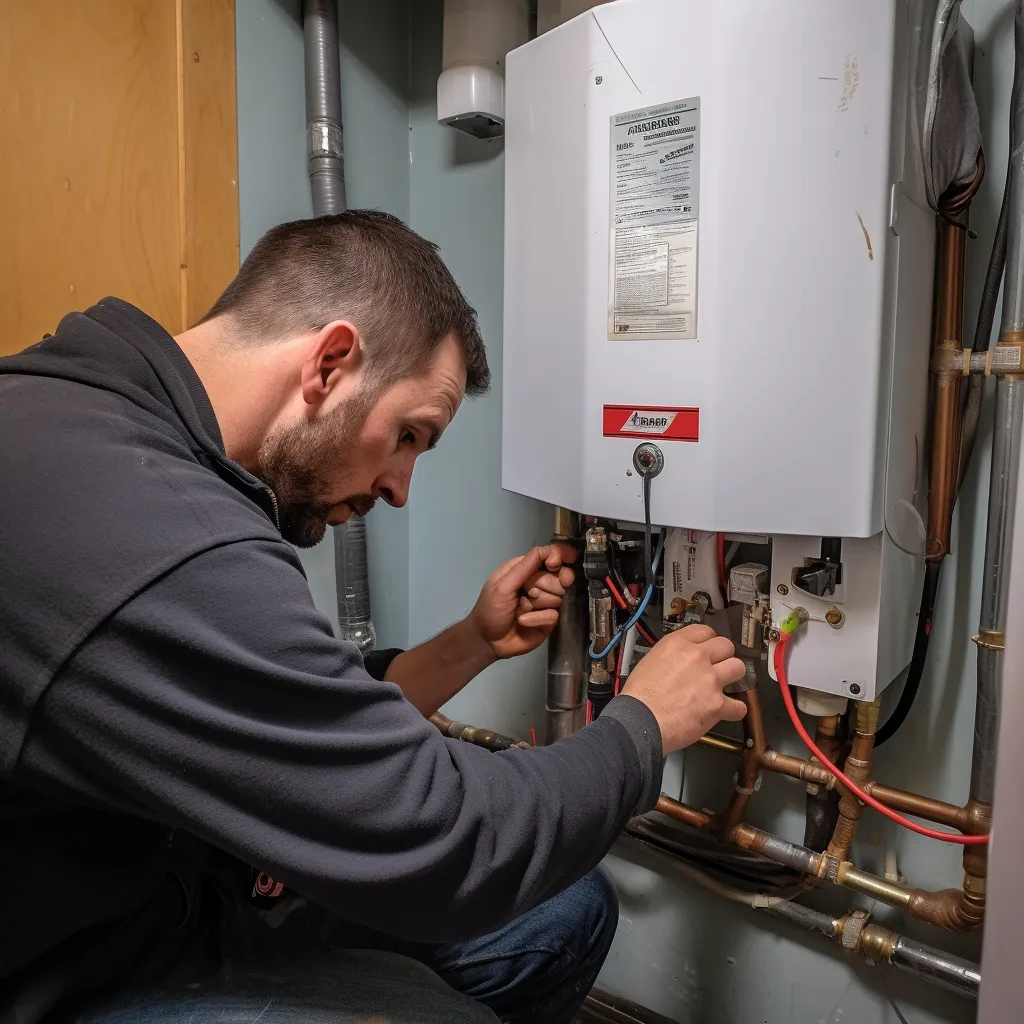
It provides a continuous supply of hot water, ensuring that you never run out, even during peak usage times. This is especially beneficial for larger households or commercial applications where high demand is common.
A condensing tankless water heater is highly efficient. It uses advanced technology to heat water only when needed, which significantly reduces energy consumption compared to traditional tank water heaters. This not only saves you money on your energy bills but also helps to reduce your carbon footprint by lowering greenhouse gas emissions.
Another advantage of a condensing tankless water heater is its compact size. Unlike bulky tank heaters that take up a lot of space, a condensing tankless water heater is typically wall-mounted, allowing for more flexibility in installation. This is particularly advantageous if you have limited space or want to free up floor space for other purposes.
A condensing tankless water heater has a longer lifespan compared to conventional tank heaters. The absence of a storage tank eliminates the risk of tank corrosion or leaks, which are common issues with traditional water heaters. This means you will have a reliable hot water source for many years to come, saving you money on potential repairs or replacements.
Using a condensing tankless water heater can improve the overall value of your property. Potential homebuyers are often attracted to energy-efficient and modern appliances, and having a tankless water heater can be a major selling point. So, not only do you benefit from the immediate advantages of a condensing tankless water heater, but it can also increase the long-term value of your home.
Disadvantages of a condensing tankless water heater
There are a few disadvantages to consider when it comes to condensing tankless water heaters:

First and foremost, these units tend to be more expensive initially compared to traditional tank-style water heaters. Their complex design and advanced technology contribute to the higher price tag.
The installation process can be more complicated and may require professional assistance.
Another disadvantage is the need for a higher gas supply. Condensing tankless water heaters typically require a larger gas line due to their higher BTU output. This can result in additional costs for upgrading the gas line if it does not meet the unit's requirements.
Condensing tankless water heaters may produce condensate, which needs to be properly disposed of. This can be an inconvenience as it requires the installation of a condensate drain and a nearby drain line.
Maintenance and servicing can be more demanding compared to traditional tank-style water heaters. Condensing units require regular cleaning and flushing to prevent buildup and maintain optimal performance. This may require additional time and effort on the part of the homeowner or hiring a professional.
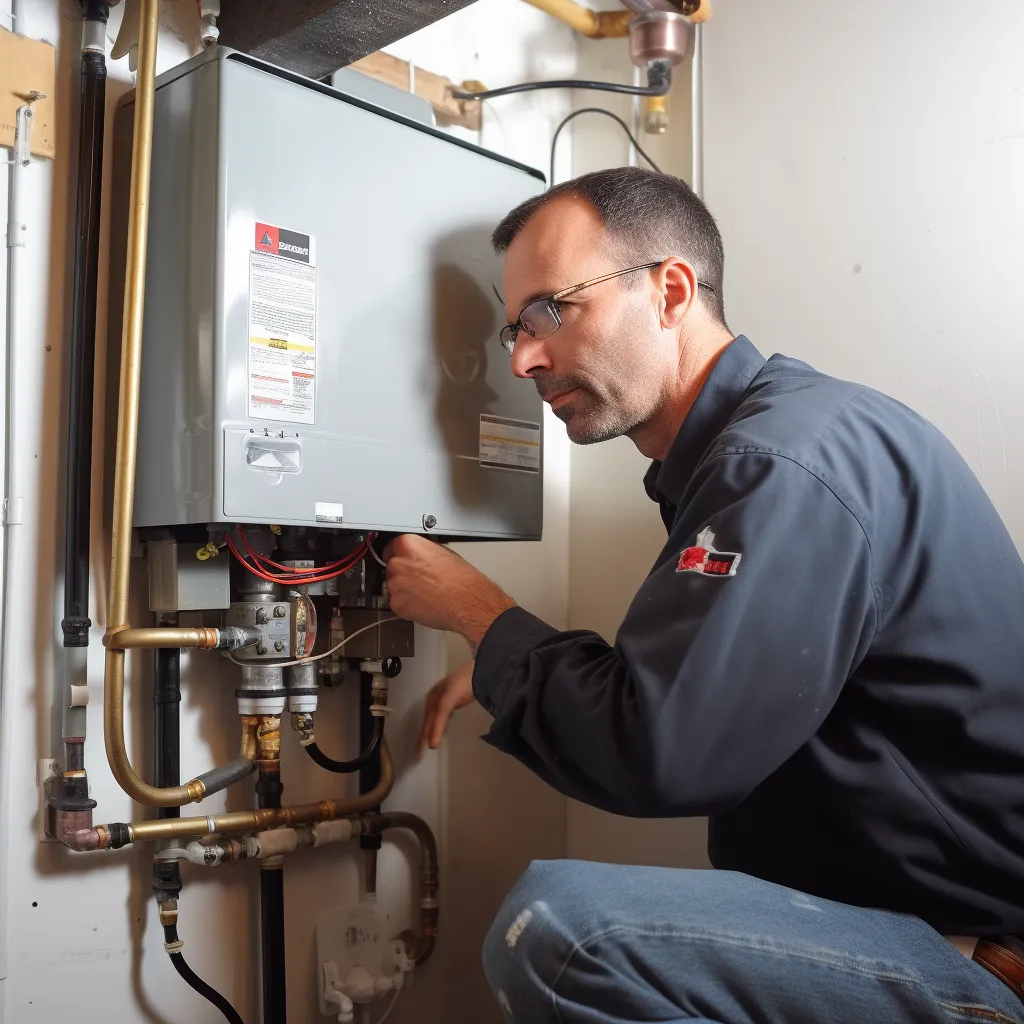
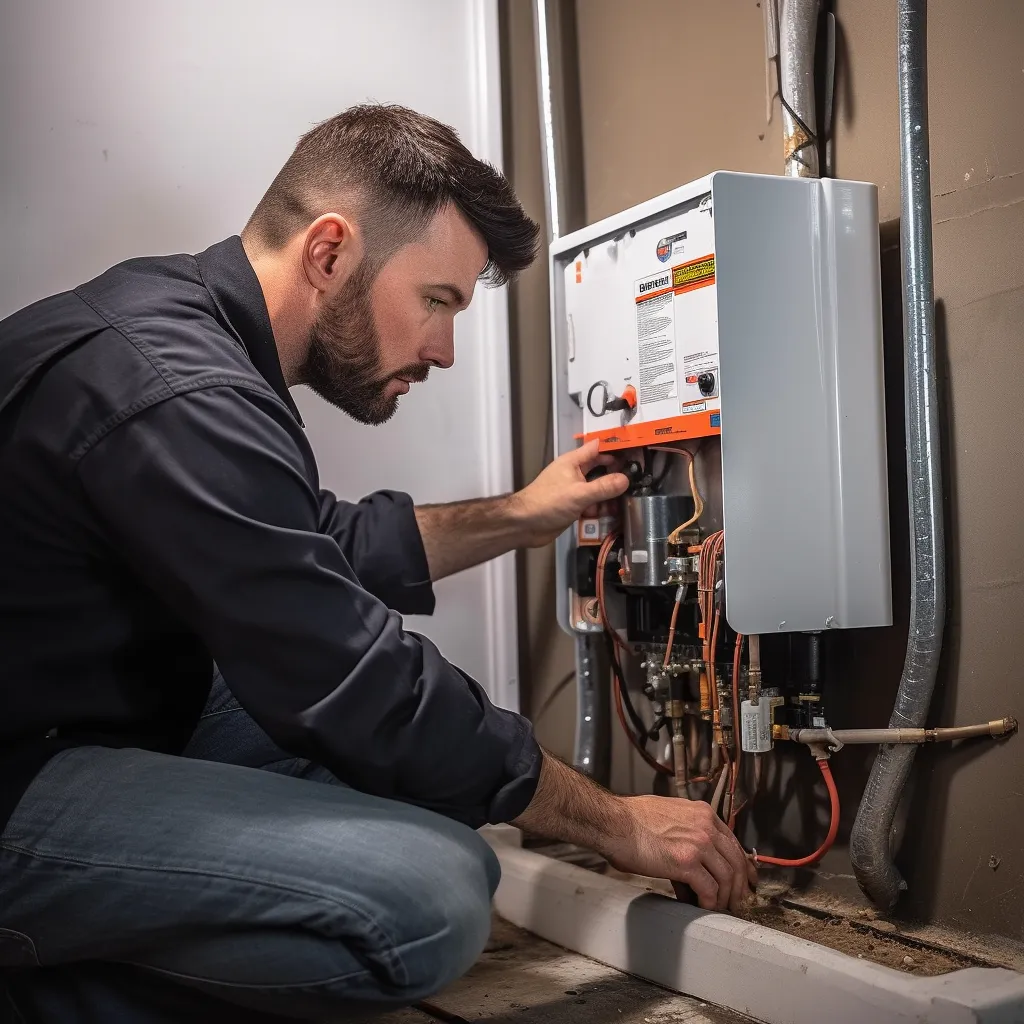
Are condensing tankless water heaters energy-efficient?
Yes, condensing tankless water heaters are known for their energy efficiency. Unlike traditional tank water heaters that constantly heat and store water, condensing tankless water heaters only heat water when it is needed. This on-demand heating reduces energy wastage and results in lower energy bills. Condensing tankless water heaters utilize advanced technology to extract heat from exhaust gases generated during the heating process. This captured heat is then used to preheat incoming cold water, further improving energy efficiency. By using this heat recovery system, condensing tankless water heaters can achieve higher energy efficiency ratings compared to non-condensing models. In addition to energy efficiency, condensing tankless water heaters also offer other benefits. They provide a continuous supply of hot water, eliminating the inconvenience of running out of hot water during showers or other activities. They also have a compact design, saving valuable space in your home.
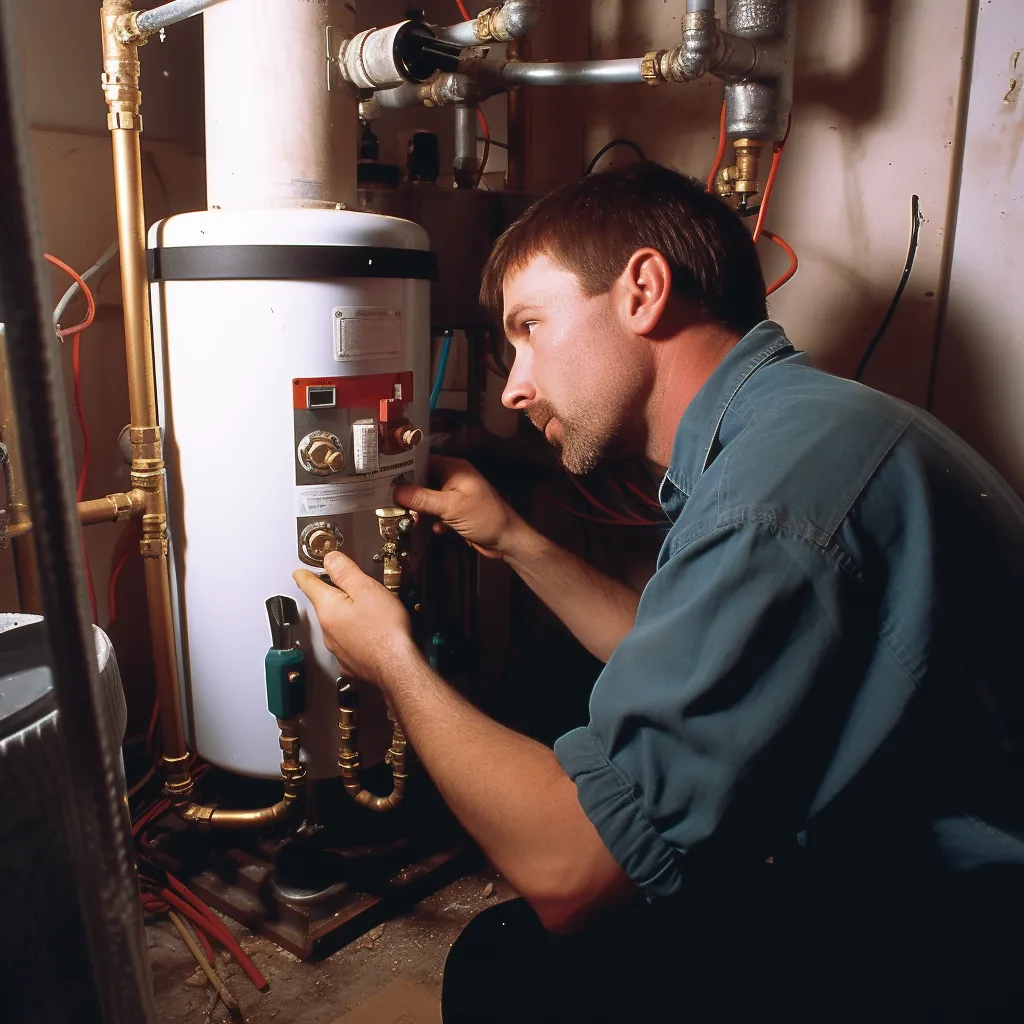
Are non condensing tankless water heaters energy-efficient?
Non-condensing tankless water heaters are known for their high energy efficiency. These units are designed to heat water on-demand, rather than constantly maintaining a large reservoir of hot water. This means that energy is only used when hot water is needed, reducing standby energy losses commonly found in traditional water heaters. Non-condensing tankless water heaters work by quickly heating the water as it passes through the unit. The heat exchanger efficiently transfers heat to the water, resulting in almost instantaneous hot water delivery. This process eliminates the need for constantly reheating water, saving energy in the process. Another factor that contributes to the energy efficiency of non-condensing tankless water heaters is their compact size and design. These units take up less space and can be installed closer to the point of use, reducing the amount of energy required to deliver hot water. While non-condensing tankless water heaters are energy-efficient, it is important to note that condensing tankless water heaters offer even higher energy efficiency. Condensing models have an additional heat exchanger that extracts heat from the combustion gases, resulting in further energy savings and increased efficiency.

What does it cost to buy and install a condensing tankless water heater?
The cost to buy and install a condensing tankless water heater can vary depending on several factors. On average, the cost of purchasing a high-quality condensing tankless water heater ranges from $1,000 to $1,500. However, this price can go higher for units with more advanced features or higher capacities. When it comes to the installation cost, it is recommended to hire a licensed plumber or HVAC professional for the job. The installation cost typically ranges from $1,500 to $2,500, depending on the complexity of the installation process and the location of the heater. It is important to note that these costs are estimates and can vary based on various factors such as the make and model of the water heater, the specific requirements of the installation, and the local market rates. Additionally, it is worth considering the long-term benefits and cost savings that a condensing tankless water heater can provide. These units are known for their energy efficiency, resulting in lower utility bills and reduced energy consumption over time.
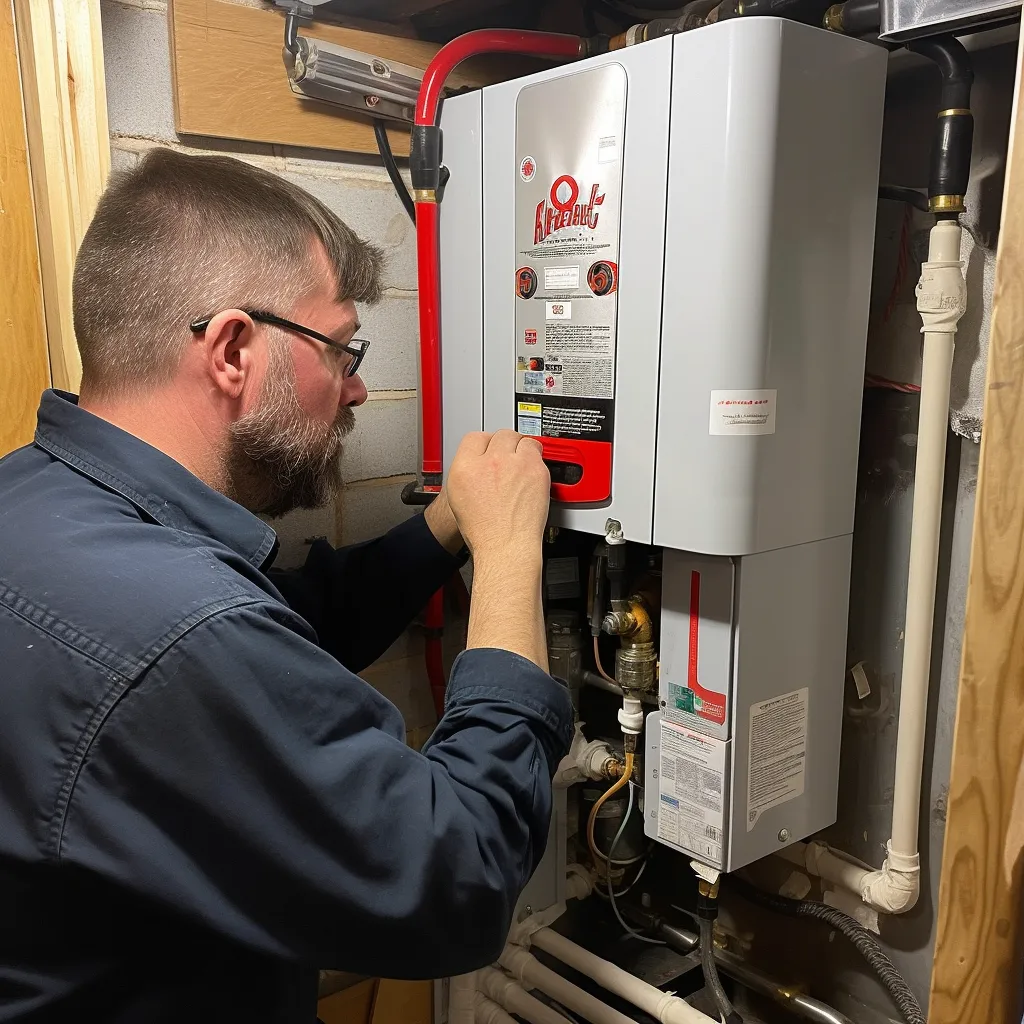
What does it cost to buy and install a non condensing tankless water heater?
The cost to purchase and install a non-condensing tankless water heater varies depending on various factors. These factors include the brand, size, capacity, and energy efficiency rating of the unit, as well as the complexity of the installation process. On average, the cost of a non-condensing tankless water heater ranges from $500 to $1,500, excluding installation. However, additional expenses such as professional installation fees, permits, and any necessary modifications to the existing plumbing and electrical systems should also be taken into account. It is recommended to consult with a licensed plumber or HVAC technician to assess your specific requirements and provide an accurate cost estimate.
Condensing tankless water heater maintenance requirements
Here are some of the maintenance requirements for condensing tankless water heaters:

One important step in maintaining the integrity and functionality of any system is to verify for leaks or potential issues. This process ensures that any possible problems are identified early on, allowing for timely interventions and preventing more significant damage.
When performing maintenance on your heating system, it is important to include cleaning the heat exchanger and burner. Regular cleaning of these components helps to ensure optimal performance and extend the lifespan of your system. By removing built-up debris and soot, you can improve efficiency and reduce the risk of malfunctions or breakdowns.
To ensure optimal efficiency, it is important to regularly inspect and replace filters. By doing so, you can enhance the performance of your system and extend its lifespan. Filters are responsible for trapping dust, dirt, and other particles that can accumulate over time and obstruct the airflow. When filters become clogged, they can significantly reduce the efficiency of your system and potentially lead to mechanical issues.
Testing the water pressure and temperature of your plumbing system is crucial for ensuring its optimal performance. By conducting these tests, you can identify any issues and take the necessary steps to rectify them. Maintaining the correct water pressure and temperature not only helps in preserving the longevity of your plumbing system but also enhances its efficiency.
To ensure optimal functioning of the venting system, it is important to regularly check and remove any debris. Debris, such as dust, dirt, or lint, can accumulate over time and clog the vents, potentially causing a variety of issues.
Regularly flushing the system is an essential maintenance task that helps to effectively eliminate any sediment buildup. Sediment can accumulate over time, leading to a range of issues such as decreased efficiency and potential damage to the system.
Regular maintenance is essential for keeping tankless water heaters in top condition to avoid problems like excessive energy bills, reduced efficiency, or potential damage. To keep your water heater running efficiently, it's a good idea to arrange regular professional maintenance checks. By taking a proactive approach to maintenance, you can save time and money in the future while keeping your water heater operating at its best.

Maintenance requirements for non condensing tankless water heaters
When it comes to non-condensing tankless water heaters, there are a few maintenance requirements that should be followed to ensure optimal performance and longevity. Regular maintenance will help prevent issues and keep your water heater running efficiently.

It is important to flush the unit annually. Over time, sediment and mineral buildup can occur inside the water heater, which can affect its performance and efficiency. By flushing the unit, you can remove these deposits and prevent any clogs or damage. This can be done by attaching a hose to the drain valve and flushing out the water from the water heater.
It is recommended to check the inlet and outlet water filters regularly. These filters are designed to catch any debris or particles in the water, preventing them from entering the unit. Cleaning or replacing the filters as needed will help maintain a steady flow of water and prevent any blockages.
It is also important to inspect the venting system of the water heater. Make sure there are no obstructions or damage to the vent pipes, as this can affect the combustion process and ventilation. Any blockages or leaks should be addressed promptly to ensure safe operation.
Be sure to check the unit for any signs of leakage or unusual noises. If you notice any leaks or hear any strange sounds, it is important to contact a professional for further inspection and repair.
Factors to consider when choosing between a non condensing vs condensing tankless water heater
When considering whether to choose a non-condensing or condensing tankless water heater, there are several key factors to think about:
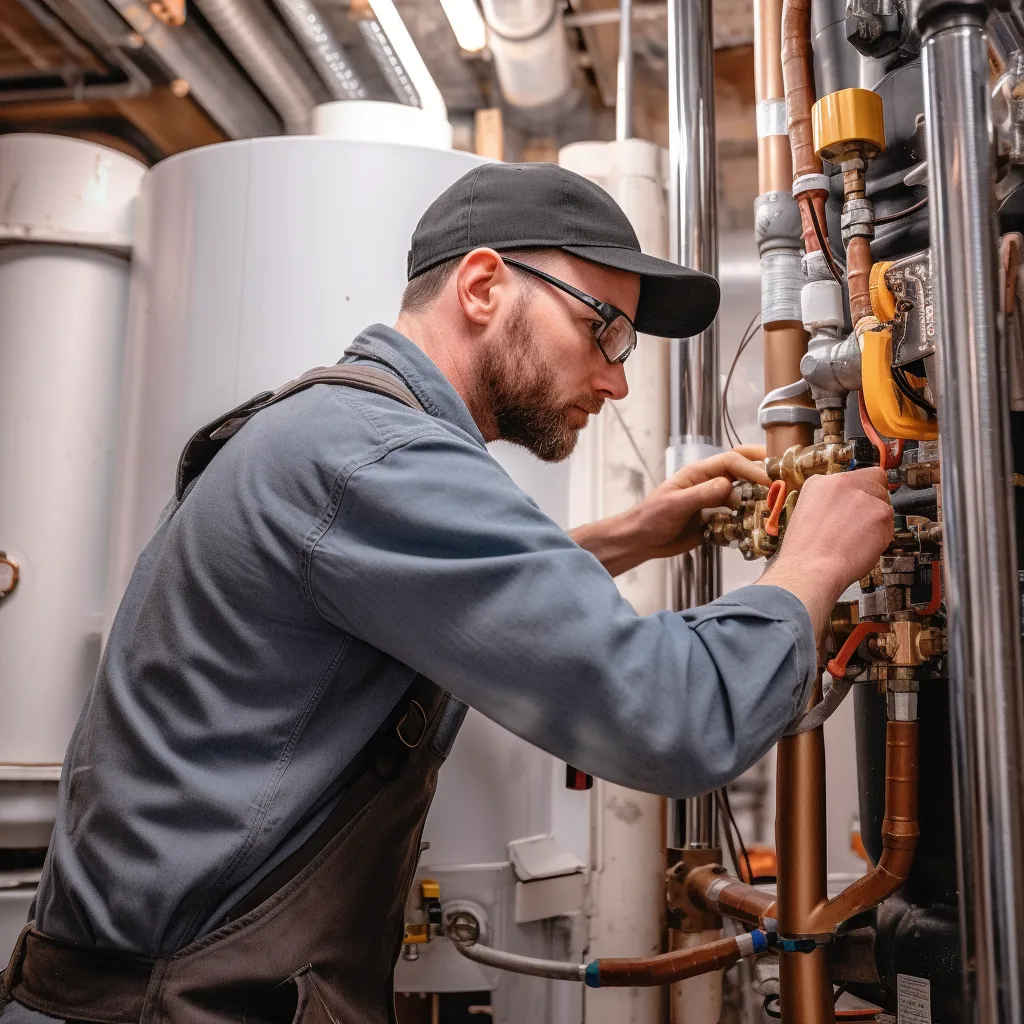
Efficiency is an important consideration. Condensing tankless water heaters are known for their high efficiency ratings, often ranging from 90% to 98%. They achieve this by utilizing a secondary heat exchanger to extract additional heat from the combustion gases. This results in significant energy savings and lower utility bills over time. Non-condensing tankless water heaters, on the other hand, have lower efficiency ratings, typically ranging from 80% to 85%.
Another factor to consider is the cost. Condensing tankless water heaters tend to be more expensive upfront compared to non-condensing models. This is due to the additional technology and components required for the condensing process. However, the higher efficiency of condensing units can offset this initial cost over the lifetime of the unit. Non-condensing tankless water heaters are generally more affordable initially but may result in higher energy costs in the long run.
Installation requirements should be taken into account. Condensing tankless water heaters often require a drain line for condensate removal, which may increase the complexity of installation. Non-condensing models typically do not have this requirement, making installation easier and potentially less expensive.
Consider the climate and temperature rise needed. If you reside in a colder climate or require a high temperature rise, a condensing tankless water heater may be a better choice. These units are designed to handle larger temperature differentials and provide hot water more effectively in colder conditions. Non-condensing tankless water heaters may struggle to maintain high water temperatures in colder climates.

Researching condensing vs non condensing tankless water heaters
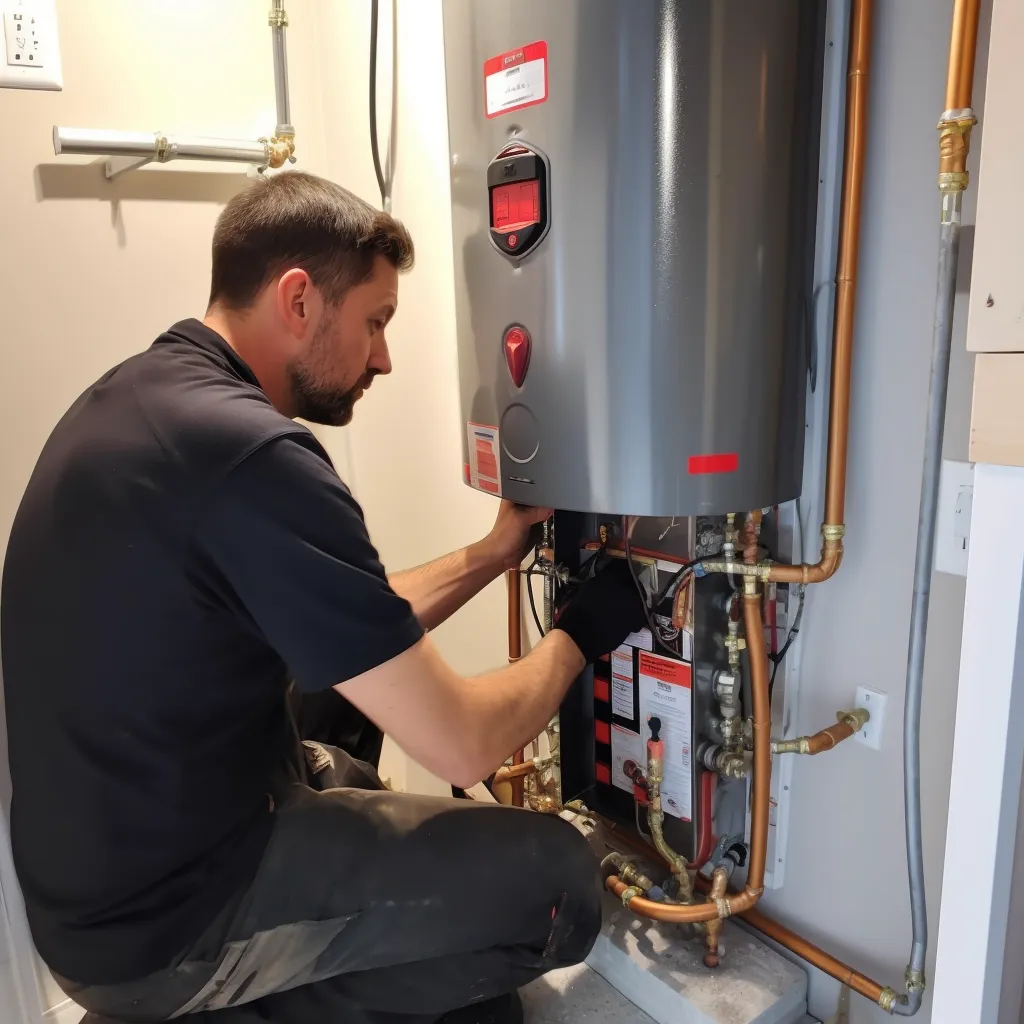
When it comes to choosing a tankless water heater for your Raleigh home, it's essential to examine the pros and cons of different types available to find the ideal one. One crucial aspect to consider is whether to opt for a condensing or non-condensing unit. Although non-condensing models might seem more affordable at first glance, it's important to note that they tend to waste energy and require more maintenance. On the other hand, condensing tankless water heaters offer greater cost-effectiveness and have the potential to lower utility bills. By taking the time to compare various options and selecting the optimal water heater type, you can enjoy a continuous supply of hot water while also saving energy.
Contact Us
GET IN FULL TOUCH
PHONE: (984) 223-8754
EMAIL:
david@waterheatersinraleigh.com
Almighty Plumbing
Raleigh, NC 27602
